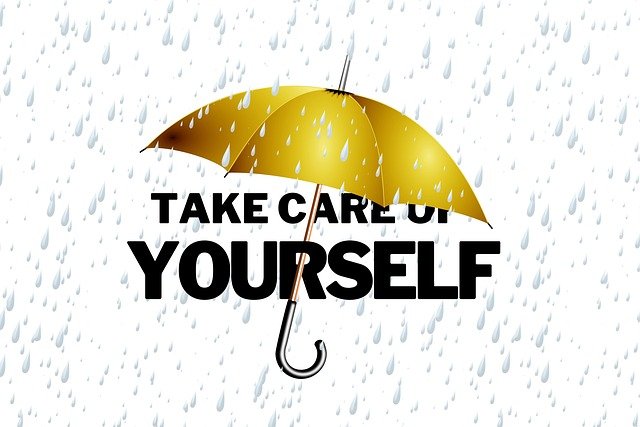In today’s fast-paced world, it’s easy to get caught up in daily responsibilities and forget to take care of ourselves. However, self-care is essential for maintaining both mental and physical health. It’s not just about pampering yourself; it’s about making sure you are recharging and refocusing so that you can live a balanced and fulfilled life. Let’s dive into what self-care really means, why it’s important, and how to make it part of your daily routine.
What is Self-Care?
Self-care refers to any intentional action you take to care for your mental, emotional, and physical health. This can be as simple as getting enough sleep, eating nutritious meals, or taking a break when you’re feeling overwhelmed. It’s about prioritizing your well-being and doing things that help you feel more balanced and energized.
Friendly Reminder: Self-care isn’t selfish! Taking time to look after yourself actually helps you be more productive, happy, and able to care for others.
Why is Self-Care Important?
The importance of self-care cannot be overstated, especially when it comes to preventing burnout, reducing stress, and improving overall quality of life. Here are a few key reasons why self-care is essential:
1. Prevents Burnout
Constantly being on the go without taking time to recharge can lead to physical and mental exhaustion, also known as burnout. Self-care practices, such as taking breaks or setting boundaries, help you avoid this by giving your mind and body a chance to relax and recover.
2. Improves Mental Health
Practicing regular self-care can significantly improve your mental health. Activities like mindfulness, journaling, or talking to a friend can reduce anxiety and promote a sense of calm. When you actively take steps to reduce stress, it boosts your mood and overall well-being.
3. Enhances Productivity
Taking time to care for yourself actually makes you more productive. When you’re well-rested, nourished, and emotionally balanced, you’re better able to focus and tackle your tasks efficiently. It’s a common misconception that working non-stop increases productivity—self-care helps you work smarter, not harder.
4. Boosts Physical Health
Caring for your body is a vital part of self-care. Regular exercise, a balanced diet, and sufficient sleep are all fundamental aspects of maintaining good physical health. When you prioritize your body’s needs, you reduce the risk of illness and improve your energy levels.
Common Types of Self-Care
Self-care looks different for everyone, and it doesn’t have to be complicated. Here are some common types of self-care you can start incorporating into your daily routine:
1. Physical Self-Care
This involves taking care of your body through exercise, nutrition, and rest. Whether it’s going for a walk, cooking a healthy meal, or making sure you get enough sleep, physical self-care is the foundation of overall well-being.
Tip: Start small—take a 10-minute walk during your lunch break or replace a sugary snack with a healthy alternative.
2. Emotional Self-Care
Emotional self-care means nurturing your emotional well-being by processing your feelings and managing stress. This can include journaling, talking to a friend, or practicing mindfulness to stay grounded and connected with your emotions.
Suggestion: Keep a gratitude journal where you write down three things you’re grateful for each day. It’s a simple but powerful way to improve emotional well-being.
3. Mental Self-Care
Engaging in activities that challenge and stimulate your brain is a great way to practice mental self-care. This can include reading, solving puzzles, or learning something new. It helps keep your mind sharp and reduces stress.
Friendly Advice: Take up a hobby like reading or painting to relax your mind while staying mentally engaged.
4. Social Self-Care
Staying connected with friends, family, and your community is important for your social well-being. Make time to catch up with loved ones, join social groups, or engage in activities that foster meaningful connections.
Pro Tip: Set aside time each week to have a phone call, coffee chat, or social activity with someone you care about.
How to Make Self-Care a Habit
Integrating self-care into your routine doesn’t have to be overwhelming. Here are some practical steps to help you make self-care a regular part of your life:
- Start Small: You don’t have to overhaul your routine to practice self-care. Start by adding one small habit, like taking a 5-minute break or drinking more water.
- Set Boundaries: Learn to say “no” when you’re feeling overwhelmed. Setting boundaries is crucial to ensuring you have time and energy for yourself.
- Schedule It: Treat self-care like any other important task—schedule it into your day. Whether it’s 10 minutes of quiet time or a quick workout, having it on your calendar helps make it a priority.
- Listen to Your Body: Pay attention to what your body and mind need. Sometimes self-care means resting, and other times it might mean being active or socializing.
Self-care is not a luxury; it’s a necessity for leading a balanced, healthy life. Whether it’s taking a few moments to relax, connecting with loved ones, or engaging in a hobby, self-care is about creating a routine that supports your well-being. By making self-care a priority, you’ll be better equipped to handle life’s challenges and enjoy its rewards.
Start small, be consistent, and remember—taking care of yourself allows you to show up as the best version of yourself for both you and others.

